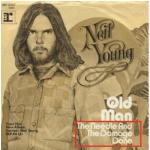In State of Missouri
Policy & Ethics
“Climate change is the phenomenon describing the fact that the world’s average temperature has been increasing over the past 150 years and will likely be increasing more in the future.”
“EPA finalizes stronger standards for harmful soot pollution, significantly increasing health and clean air protection for families, workers, and communities…”
To publish as you please?
Three years after its first‐in‐the‐nation drug decriminalization measure (Measure 110) went into effect, Oregon’s lawmakers are
The case in question concerned Gilead’s drug Tenofovir, widely prescribed for the treatment of HIV and Hepatitis B.
Last weekend, Senate negotiators announced a bipartisan compromise on a supplemental spending package that will create toug
“Whether a duty exists is a question of law to be resolved by the court.”
Most cases against Roundup are pending in state courts that do not adopt the Daubert (reliability) standard and Rule 702 of the Federal Rules of Evidence.












